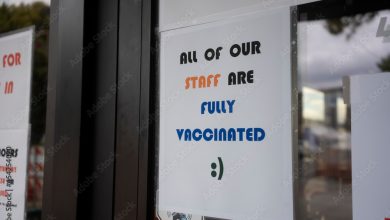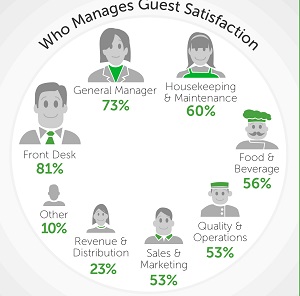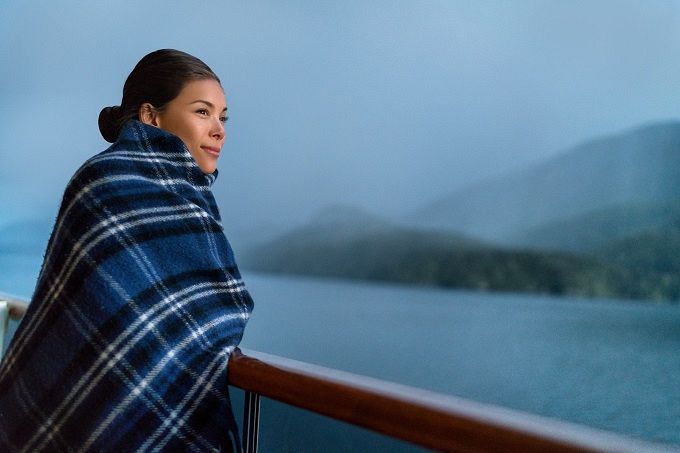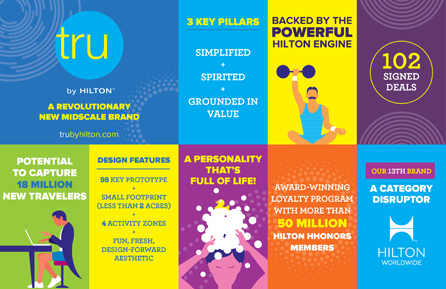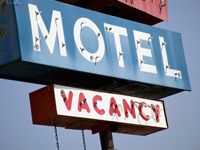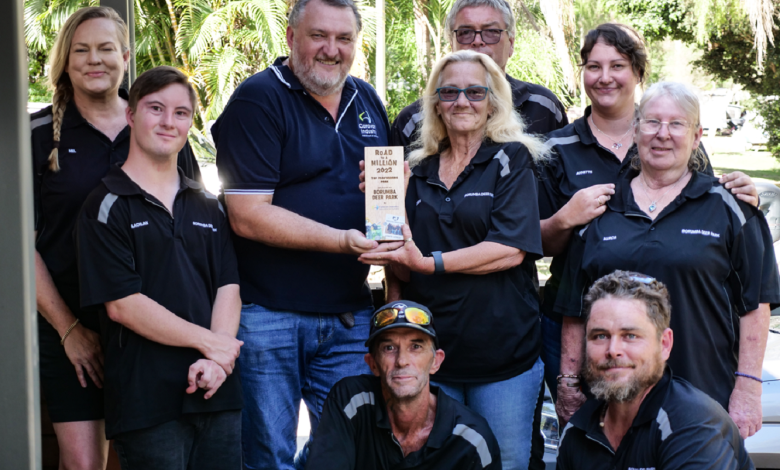
Fearless, passionate & enthusiastic: The top man of Australia’s caravan association
Exclusive interview with Stuart Lamont on what it takes to lead an industry that is now worth $27 billion annually to Australia's economy
AccomNews caught up with Caravan Industry Association of Australia (CIAA), CEO Stuart Lamont, who has been in his current position since 2011 and with the organisation in various roles, since 2007.
The peak national industry organisation CIAA was formed from the merger of Caravan, RV & Accommodation Industry of Australia Ltd (CRVA) and Recreational Vehicle Manufacturers Association of Australia (RVMAA) in July 2014. It operates under four core pillars of responsibility – marketing, research, advocacy, compliance and accreditation.
What attracted you to this industry?
I have always loved travelling, seeing new places and hearing about others’ travel experiences. This current role, however, was more opportunistic. My wife and I were on an extended overseas travelling holiday taking a career break, when a previous client of ours suggested we could help with (the then) CRVA’s national conference. Several weeks later their admin manager had a serious motorbike accident and I filled in. I haven’t left, moving through business development and client management positions to my current role as CEO.
You are a New Zealander?
Yes, but I have been in Australia for nearly 30 years. While we holiday differently, our love affair for caravan and camping runs deep on both sides of the Tasman.
Tell us about your passion for caravanning and camping?
We used to always caravan and camp back in New Zealand as a family. This was usually with a core group of families, instilling a sense of community and freedom of spirit, though others were always welcome to join. There was nothing better as a child than softball with a stick, cricket on the driveway (hitting a caravan window was always six and out), chasing wildlife in the bush, playing card games in the evening, sneaking ice creams from the kiosk, swimming in the waterholes, or tubing down the river.
Parents in the caravan, kids in tents, communal dinners around the campfire. While it was only ever 20km from home, it was a world away and the only rule was to be back at the campsite by mealtime!
As I travel around the world and observe behaviours in modern campgrounds, the same buzz of excitement, the same thirst for adventure, connection and willingness to lend a hand remains.

What did you do before leading Caravan Industry Association of Australia?
After finishing a commerce degree majoring in accounting, I held senior management roles in road construction, plastics manufacturing, computer peripherals, business real estate and celebrity management.
These roles (along with a love affair with travel) mean I have empathy with the challenges and opportunities facing the supply chain across the industry, while maintaining a solid grounding in stakeholder and cashflow management, vital within a dynamic and constantly growing entity.
You helped steer CIAA through the pandemic, that was a challenge?
This was a team effort with our state associations working hard alongside state governments to keep the industry open. Cleverly executed national marketing campaigns meant we were able to outperform other industry sectors.
We continued talking to our consumers through the pandemic and kept them motivated toward our industry offerings, and connected to the industry through a camp-at-home campaign. During the initial outbreak, it encouraged consumers to take short trips as domestic travel emerged and incentivised them to travel further as borders re-opened.
The caravan and camping sector has been a quiet achiever for many years.
Yes. The industry is well known with 90 percent of Australians having caravanned or camped at some point. However, for policymakers and tourism agencies, it has been seen as a recreational activity rather than an economic powerhouse, which drives significant social benefit and many billions of dollars to regional towns right across Australia.
The industry is now worth $27 billion annually, which continues to be consumer driven allowing it to be responsive to social trends and travelling behaviours. In recent years caravanning and camping was the number one source of accommodation for leisure travellers nationally, and the number one source of accommodation irrespective of the purpose of travel outside of capital cities.
What do you think is the main concern for the industry going forward?
We are at an important juncture in industry development. With the transition to electrification (and broader sustainability trends) as well as the advent of Artificial Intelligence and new materials (for instance 3D printing), the industry must continue to be nimble and embrace these new ideals, and respond quickly to new consumer expectations.
While this presents obvious challenges, through proactive investigation by industry leaders assisted by associations, many opportunities for early adopters will present themselves.
Common issues and frustrations around labour attraction and retention within a regional footprint, insurance accessibility and affordability, and utility pricing all remain on the radar and something which the national body is eager to look for solutions on.
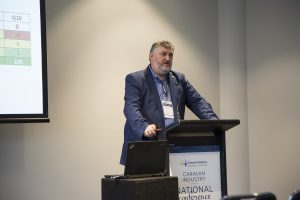
What excites you most about the future?
The calibre of the next generation of industry decision-makers. The way these new generations think will challenge the status quo on how we currently market and service our customers. This input will be more aligned with who is using and servicing our industry in the future as the average age of the caravanning consumer and our labour force transitions to new age cohorts.
Programs such as Future Leaders have identified some incredible talent across all sectors within the industry, and it is encouraging that we are already seeing some of this infiltrate into management teams, industry committees and association boards. Fearless, passionate, and enthusiastic talent, I am excited to nurture and see where they will take the industry into the future.
What has been your biggest career challenge?
Personally, it’s time management. There is always so much to do, and so little time and resources. When we do achieve something amazing, we do not take the time to celebrate before the next project needs attention.
In your view, what traits constitute effective leadership?
Having a team of stakeholders (both internal and external) behind you, working willingly and positively towards known and measurable goals. Whether we achieve this will always be subjective, however harnessing the power of collaboration allows us the best opportunity for success.
What accomplishments are you most proud of in your professional life?
There are many of which I am proud, including the bringing of world industry leaders to Australia in 2015 (World RV Conference); the successful merging of the two national representative bodies for the industry; doubling the numbers of our annual convention to more than 1000 attendees; the establishment of genuine research and advocacy pillars on behalf of the industry; the innovative marketing campaigns which kept the industry connected to our consumers during COVID; the reduction in compliance related concerns by 40 percent with increased product inspections and education; through to the development of our Future Leaders program and seeing young people now heavily represented around decision making tables across the industry.
However, securing $1 million for the installation of defibrillators across the caravan and holiday park industry nationally, which has already saved many lives, is probably the most special.
You’ve expressed a fondness for ‘doers’ and those who deliver concrete outcomes. What traits or actions of a park operator do you find most commendable?
What immediately struck me as I travelled around the industry in the early days was the camaraderie. It was nothing to see parkies helping other parkies, whether it be putting people up, sharing advice, assisting in trade shows, or getting on the end of the shovel following natural disasters.
This has been one of the success stories of the industry, where participants have valued the collaborative nature of working together. Whether that be in the evolution of independent referral chains through to selflessly contributing to the development of the industry through a contribution to the association’s national marketing and advocacy fund.
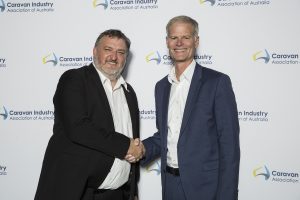
What facilities or features do you value most in a caravan and camping park?
A full ironing board or easily accessible laundry, and a strong internet connection are all must-haves for me personally. Conveniently placed power points are a big bugbear of mine, and something which the entire tourism industry needs to address. There is nothing more frustrating than having to pull out the bed to charge your devices.
As a business traveller, I do get the best of both worlds and would spend up to 50 nights a year in caravanning product (specifically cabins). These provide all the amenities you would expect from an overnight stay, but in many cases with increased living space and vistas to die for. It is great to take a walk around the campsite as evening approaches and hear the noise of conversation and children playing, or to be woken to the sounds of local birds and wildlife.
More broadly though, caravan and camping is a great excuse for hitting the road and viewing the diversity of gems located within regional and rural Australia and, importantly, spending a few dollars in the townships off the main transit routes such as – Clunes (VIC), Tin Horse Highway (WA), Daly Waters Pub (NT), Legerwood Carved Memorial Trees (Tas), the Turtles at Mon Repos (QLD), Junee Licorice and Chocolate Factory (NSW), the Canberra Deep Space Communication Complex (ACT), and Hahndorf (SA) , to name a few favourites.
Who inspires you?
I am particularly inspired by those who face challenges but adopt a glass-half-full attitude. The ability to take horrific circumstances and turn these into a positive, puts most of us to shame, as they embrace all the things they can do, as opposed to dwelling on those things they are no longer able to attempt.
Speakers such as Tony Christiansen, Dylan Alcott, Michael Crossland, and Sam Cawthorn all demonstrate incredible perseverance. For different reasons, I was always touched by the story of Eddie “the Eagle” Edwards who in real life as ‘in fiction’ is unassuming, but showed great determination, despite constant obstacles and knockbacks.
I am also fascinated by professional cycling and the lessons that can be learned from these athletes. The cat and mouse of the chase of the breakaway, the working to individual strengths to promote team outcomes, being flexible when circumstances change during each leg, and when the result is on the line, the continued drive to push on to the finish line despite your body having blown up, realising that every incremental effort you make in the journey could be invaluable at the end of the race.
What is the best advice you’ve been given?
Four pieces of advice that I try to abide by are:
Always be true to yourself: If at the end of the day, you can look in the mirror and be proud of the contribution you have made, the decisions you have taken, or how you have assisted someone to advance their knowledge, career or way of life then it has been a good day.
Try and block out the white noise and stay true to the course: It is easy to be distracted by short-term thinking or those who have an uninformed or incomplete opinion. Each decision you make should always be moving towards the end goal.
The answer is always yes until it is no: Too often people look to the negative, give up too quickly, or take the easy option of not exploring how something could be achieved. The attitude of exploration and commitment to the result is everything.
Always spend association money as if it is your own: It is a privilege to be charged with representing industry, and it is important to make sure that any funding received is invested wisely on behalf of industry, and back into industry programs.
And finally, impart your wisdom to those seeking a career in this industry.
The caravan and camping industry offers many diverse opportunities in both white- and blue-collar roles and for those seeking long-term career prospects or entrepreneurial opportunities. Advancement to management and supervisory roles are everywhere across the industry in engineering, manufacturing, finance, hospitality, inventory management, sales, property investment, tourism and so much more.
Our latest AccomNews print issue is available now. Read it HERE
Mandy has over 17 years of accommodation and tourism industry writing experience and is Editor of AccomNews & Resort News, Publisher of SchoolNews & Director of Multimedia Pty Ltd. She is a retired registered nurse with a 25-year NHS career that followed a few unforgettable years in hotel housekeeping.

